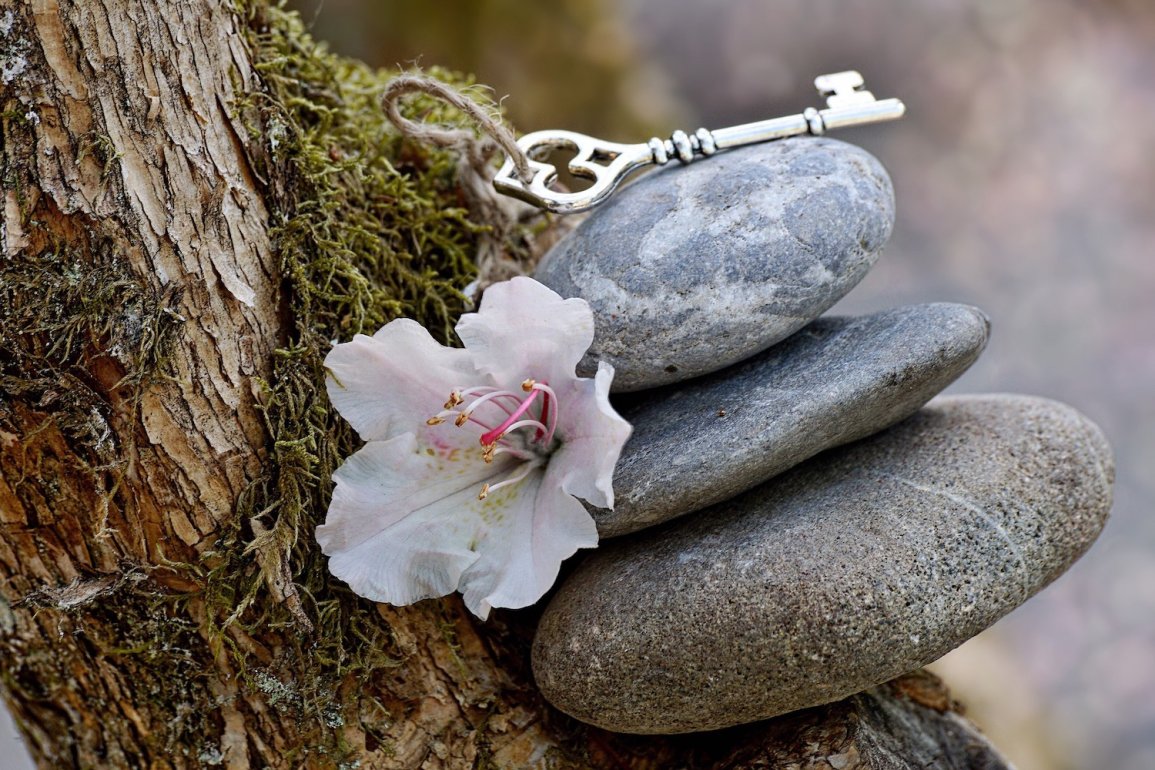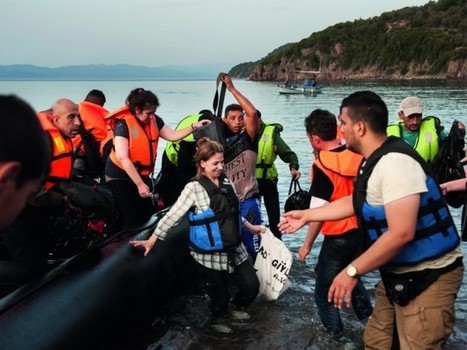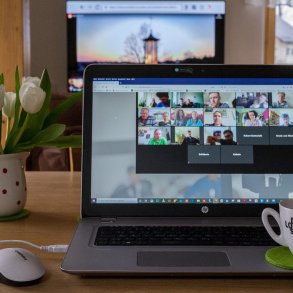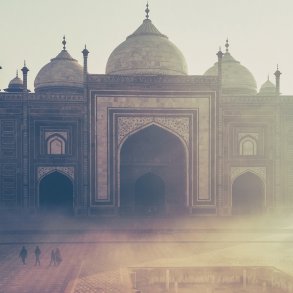By Anna Betz for Enlivening Edge Magazine
This is Part 2 of a 3-part interview series. Part 1 is here.
Anna: How do you feel about the impact you and Buurtzorg are having in the world?
Jos: I am quite happy to see that it happens all over the world. Every few days another country contacts me asking for support. Yesterday I had an email from a nurse in Istanbul and just before that from someone in Abu Dhabi. It feels just very natural and keeps me very busy.
I am not so much thinking about the impact but how we can support all the people who want to do  something different in different countries. We will have a meeting this week here in Holland with some people from China, other international contacts, and Brendan from Public World who is supporting my work in the UK. I want to discuss with them the nature of a good strategy and what we can do to support these activities in different countries in a way which doesn’t take away the energy from the countries, but gives them power to move on. Of course, it is also a question of what we can afford ourselves in terms of time and money to support these projects.
something different in different countries. We will have a meeting this week here in Holland with some people from China, other international contacts, and Brendan from Public World who is supporting my work in the UK. I want to discuss with them the nature of a good strategy and what we can do to support these activities in different countries in a way which doesn’t take away the energy from the countries, but gives them power to move on. Of course, it is also a question of what we can afford ourselves in terms of time and money to support these projects.
It all feels as if it is part of a natural development. When I see that people are inspired by Buurtzorg, of course it gives me a good feeling. But I am also worried that people don’t understand all the different aspects of it. What I see is that you have a lot of very good nurses and doctors who are very good at being a nurse or a doctor, but don’t have an idea about the economical model and
if you don’t have a good idea about a business model or an economic model, you can become very frustrated when it doesn’t work.
A lot of people think that how we started was just an idea that simply worked. As I explained in our previous conversation, we had a long preparation time.
For example, we are supporting Michelle in Minnesota in the US. She is struggling with the complexity of the system. Of course, it can lead to a lot of frustration when it doesn’t work. That is when people need our support.
The Nature of System Change
Anna: At the moment our organisational structures are very rigid, so they can’t deal with creative and innovative energy. People have also internalised those structures without being conscious of that, and thus assume our present reality is the only possible one. How can we create dynamic structures that are responsive to what wants to emerge?
Jos: As it is an evolution, you have to deal with the rigid system as it is. We need to have some clarity on how we can develop, and then we need certain skills and personalities together who are dealing with these different aspects, like finances, organisational change, and best nursing practice.
In Holland we have quite a good balance in terms of different histories, different skills, and different personalities. We still work as a group of friends with a lot of understanding about each other, what we are good at and what we are not good at. So that’s also the way we discuss things.
Perhaps it is a good idea that someone is doing this or that while it should always remain open to discussion. Things don’t have to go this way or that way. There are always different possible scenarios. We shouldn’t become fixated on one way of doing things.
Anna: Laloux in his book Reinventing Organizations talks about leadership being about sensing and responding rather than leading from the front. In Buurtzorg, who is doing the sensing? The group as a whole or you individually as the leader?
Jos:
Sensing is happening all the time. By working the way we do, we created a culture where sensing is happening all the time by everyone.
So I get messages from teams, from nurses, from friends, even from my mother. It allows me to see from a distance what’s happening. They all have their own perceptions, looking at what’s happening from their own interests or their own expertise. Naturally everyone has different perceptions and can see things others may not see.
Sometimes I have a call from a friend and we have a phone call for an hour. We listen to each other’s perspective and decide whether to let go of an idea or not. Should we send a message to a politician, for example? Is it necessary or not, or could it be harmful? These kinds of things are happening all the time.
Decision-making that values intuition alongside knowledge and evidence
Anna: Is there something in you that knows that it is the right thing, the right time, right place, right circumstances to make a decision? How do you cultivate your intuition, wisdom, and your learning? Is there a practice that you use or have used that helps you to respond in a way that moves things forward?
Jos: I was inspired by professor Ikujiro Nonaka from Japan. He and his colleagues wrote a lot about knowledge, knowledge management and tacit knowledge. I read about him in the 80’s. He described for me in a very practical way how it works with tacit or implicit knowledge. For example, when you become a nurse, you continue to become better and better over the years if you reflect with your colleagues and your seniors on what you are doing, as they have a lot of experience and knowledge.
 Professor IkujiroNonaka has a concept called practical wisdom which emerges from tacit knowledge as well as from evidence and also from intuition. He encourages you to bring intuition into your decision-making and says that using a combination of experience, practical knowledge, evidence, and whatever the reason is for what you are doing, together with your intuition, means that you are making the right decision.
Professor IkujiroNonaka has a concept called practical wisdom which emerges from tacit knowledge as well as from evidence and also from intuition. He encourages you to bring intuition into your decision-making and says that using a combination of experience, practical knowledge, evidence, and whatever the reason is for what you are doing, together with your intuition, means that you are making the right decision.
This process is going on all the time. Naturally whatever you give attention to will grow. As you pay attention to your intuition and develop sensibility for your environments, they play an increasingly bigger part in your decision-making.
If you compare this with the traditional way of managing, where you get your strategic plans, your yearly plans and the normal kind of policy plans, then you are responding to the plans. We say you should always listen to the environment you are working in and respond to what’s happening in that environment.
For example, now at Christmas in Holland, everyone gets a Christmas gift from Buurtzorg. We bought 10.000 Christmas gifts. We always try and create a gift that has a higher purpose. The gifts were made in India, for example, and were made of different things. Our idea was to give people in India a job for a longer time. Then we received a lot of cards that were saying: “Thank you for this very thoughtful gift that fits with our values.”
With everything we do, we try to think about what it means.
We wanted to make the gifts special and didn’t just want to buy a box with all kinds of foods people can buy themselves.
Also coming up to Christmas. I had to think all the time about the refugees. So we had a discussion about what’s happening in the world, what’s important, and how and what we can contribute.
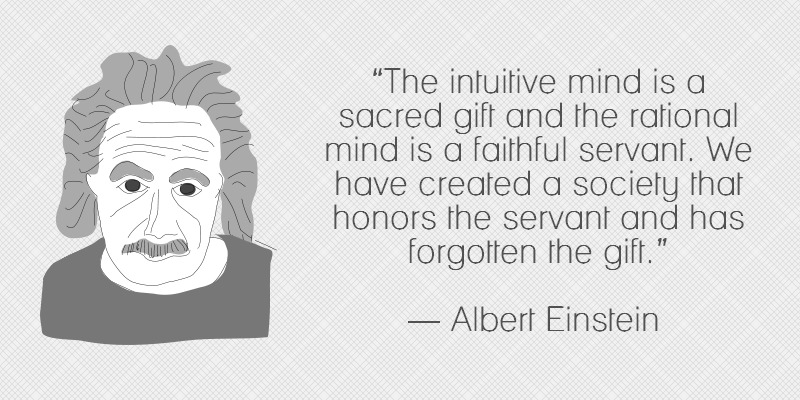
Something I learnt when I became a nurse is that your feelings are important when you are relating to patients. If you can share what you are seeing, then you have a dialogue. This is where intuition comes in. You can just do, feel, and learn from what you see which contributes to finding solutions. You become stronger, I think.
Anna: The way you work and how you enable meaningful connections seems to create a field that enables more and more people to connect to different values and help a new more compassionate culture in healthcare to unfold naturally.
Jos: Yes, and it feels also very natural. You don’t have to think about these things. It is not a strategy. It is just happening because you want to share these things. I think there are many universal things that people are concerned about and thinking about. So the idea is, lets talk about it. With the arrival of a lot of refugees, we got a lot of questions from nurses asking “What can we do? What can we contribute to create solutions?”
Anna: And how did you respond?
Jos: I wrote my blog and said that I am getting questions from nurses asking ‘What can we do?’ I said ‘Who has ideas?’ I also made contact with the Red Cross and with the foundation for refugees. I asked them whether we could contribute in places where groups of refugees were arriving in Holland. As a result, some municipalities asked us to do something in healthcare.
Some of the nurses went to Lesbos sponsored by us for a few weeks. We told them that they didn’t need to go just as volunteers but that we would support them.
That’s what we already do with projects when people want to go to Pakistan, to India, or to Africa to volunteer. We try to support them by paying for traveling cost and paying for part of the hours they are working there.
Anna: That must inspire many people.
Jos:. One of the things I am telling people is that in 10 years’ time, I want to have connections between countries to show that we are very lucky living in a rich country which enables us to contribute to the development in other countries and also to learn from them. Many of our nurses have connections in other countries. Four of our nurses have been in Zimbabwe for two weeks offering support there. In the process they also learnt a lot about prevention. It is about sharing experiences and also asking nurses to come to Holland so that we can contribute in that way as well. Something I would like to expand in the coming years is to support people with good ideas and good projects in their own countries.
If what you have learnt so far about Jos’ journey with Buurtzorg inspires you, I invite you to follow this link to part 3 of the interview where Jos talks about the influence of his work in the UK.
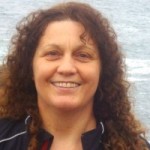 Anna’s background is in Health and Socialcare with training in Herbal Medicine, Socialwork, Mindfulness Practice, Transparent Communication, and Systemic Family Therapy. She practices a proactive evolutionary approach to Health and Wellbeing and leads on projects in the UK National Health Serive using Mindfulness and diet for people suffering from chronic inflammatory diseases like diabetes and dementia. Her passion for building thriving and sustainable communities inspired her to co-found the HealthCommonsHub. She feels at home in places where individual, communal, organisational, and social evolution meet, and where people support each other in becoming whole and feel enlivened.
Anna’s background is in Health and Socialcare with training in Herbal Medicine, Socialwork, Mindfulness Practice, Transparent Communication, and Systemic Family Therapy. She practices a proactive evolutionary approach to Health and Wellbeing and leads on projects in the UK National Health Serive using Mindfulness and diet for people suffering from chronic inflammatory diseases like diabetes and dementia. Her passion for building thriving and sustainable communities inspired her to co-found the HealthCommonsHub. She feels at home in places where individual, communal, organisational, and social evolution meet, and where people support each other in becoming whole and feel enlivened.
Featured
